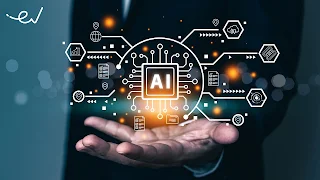Artificial Intelligence (AI) has increasingly become a ubiquitous part of modern society, revolutionizing various industries and transforming the way we live, work, and interact with technology. From personalized recommendations on streaming platforms to autonomous vehicles and advanced healthcare diagnostics, AI is reshaping the world in profound ways. This article explores the diverse applications of AI, its impact on different sectors, and the potential implications for the future.
Understanding Artificial Intelligence
At its core, AI refers to the ability of machines to perform tasks that typically require human intelligence. This encompasses a wide range of capabilities, including learning, problem-solving, perception, and language understanding. Machine learning, a subset of AI, enables systems to improve their performance on a specific task through data analysis, without being explicitly programmed.
AI in Everyday Life
Personalized Recommendations and User Experience
One of the most prevalent uses of AI is in the realm of personalized recommendations. Streaming services, e-commerce platforms, and social media utilize AI algorithms to analyze user behavior and preferences, providing tailored content, products, and advertisements. This not only enhances user experience but also drives engagement and revenue for businesses.
Healthcare and Diagnosis
AI has made significant inroads in healthcare, particularly in diagnostic applications. Advanced machine learning algorithms can analyze medical images, detect anomalies, and assist healthcare professionals in diagnosing conditions such as cancer, eye diseases, and neurological disorders. Additionally, AI-powered telemedicine and remote patient monitoring offer improved access to healthcare services.
Autonomous Vehicles
The automotive industry has witnessed a paradigm shift with the integration of AI in the development of autonomous vehicles. Self-driving cars leverage AI technologies such as computer vision, sensor fusion, and decision-making algorithms to navigate roads, interpret traffic conditions, and ensure passenger safety. The potential for reducing accidents and optimizing transportation systems is a driving force behind continued AI innovation in this sector.
Financial Services and Fraud Detection
In the financial sector, AI plays a pivotal role in fraud detection, risk assessment, and algorithmic trading. Machine learning models can analyze vast volumes of financial data in real-time to identify suspicious patterns, mitigate risks, and enhance the overall security of digital transactions. Moreover, AI-powered chatbots and virtual assistants are being deployed to improve customer service and streamline financial processes.
AI and Business Transformation
Enhanced Decision-Making
Businesses are leveraging AI to gain actionable insights from large datasets, enabling informed decision-making across various functions such as marketing, supply chain management, and customer relationship management. Predictive analytics and AI-driven forecasting empower organizations to anticipate market trends, optimize resource allocation, and enhance operational efficiency.
Process Automation
AI technologies, including robotic process automation (RPA) and intelligent workflow management, are automating repetitive tasks and streamlining business processes. This not only leads to cost savings but also allows employees to focus on higher-value activities that require human creativity and problem-solving skills.
Customer Engagement and Personalization
AI-powered chatbots, virtual assistants, and natural language processing (NLP) enable businesses to deliver personalized customer interactions at scale. By understanding and responding to customer inquiries and preferences in real-time, AI enhances customer engagement, fosters brand loyalty, and drives conversions.
Ethical and Societal Implications
While AI offers immense potential for progress, it also raises ethical and societal concerns that must be addressed. The use of AI in areas such as facial recognition, predictive policing, and algorithmic decision-making has sparked debates around privacy, bias, and accountability. Ensuring transparency, fairness, and responsible AI governance is crucial to mitigate these risks and build trust in AI systems.
The Future of AI
Looking ahead, the trajectory of AI points towards continued innovation and integration across diverse domains. Advancements in AI research, including explainable AI, federated learning, and AI ethics, will shape the evolution of responsible AI applications. Additionally, interdisciplinary collaboration and ongoing dialogue on AI policy and regulation will be instrumental in harnessing the full potential of AI while addressing its societal impact.
In conclusion, AI has become an integral part of modern society, driving innovation, efficiency, and convenience across industries. Its transformative impact on everyday life, business operations, and societal dynamics underscores the need for ethical considerations and responsible deployment. As AI continues to evolve, embracing its potential while mitigating associated risks will be essential in shaping a future where AI benefits humanity in a meaningful and sustainable manner.
This article provides a glimpse into the multifaceted landscape of AI, highlighting its current applications, implications, and the path forward as AI continues to redefine the fabric of modern society.

